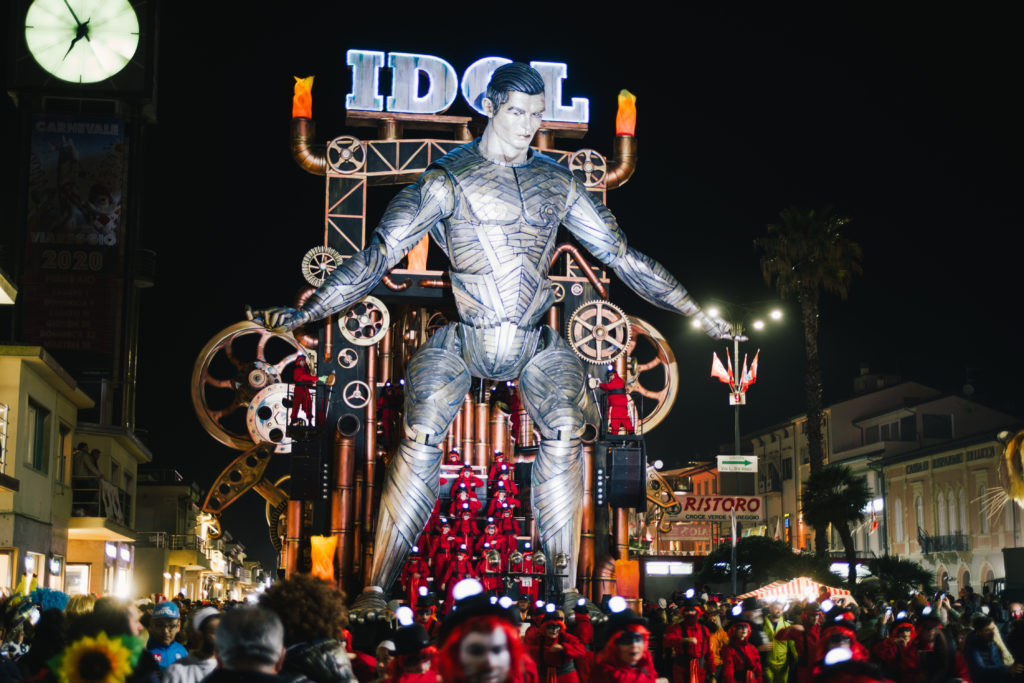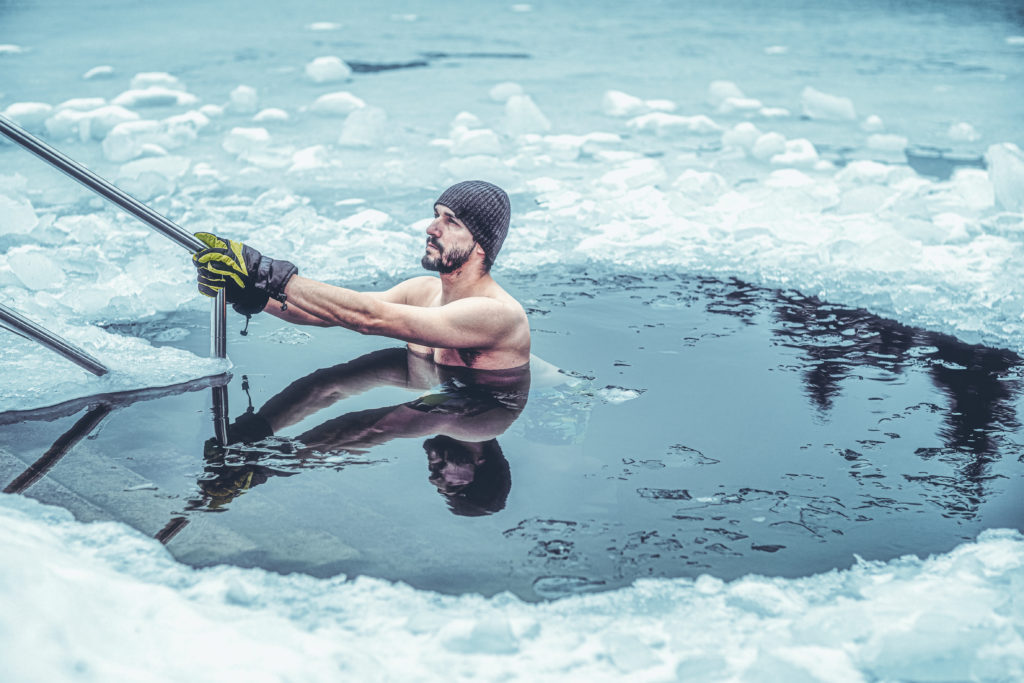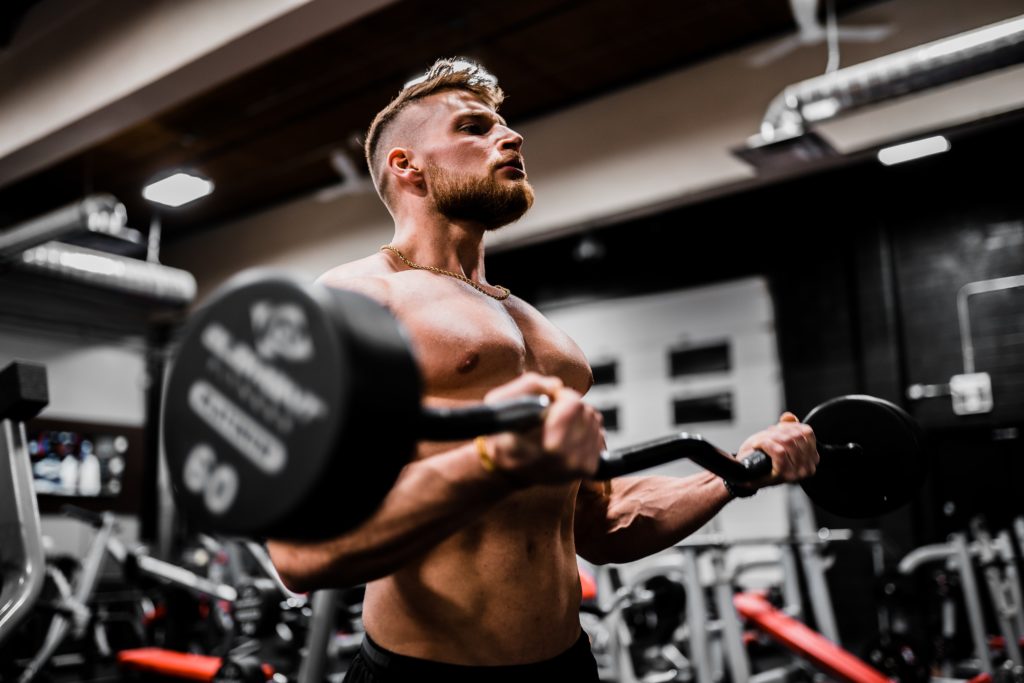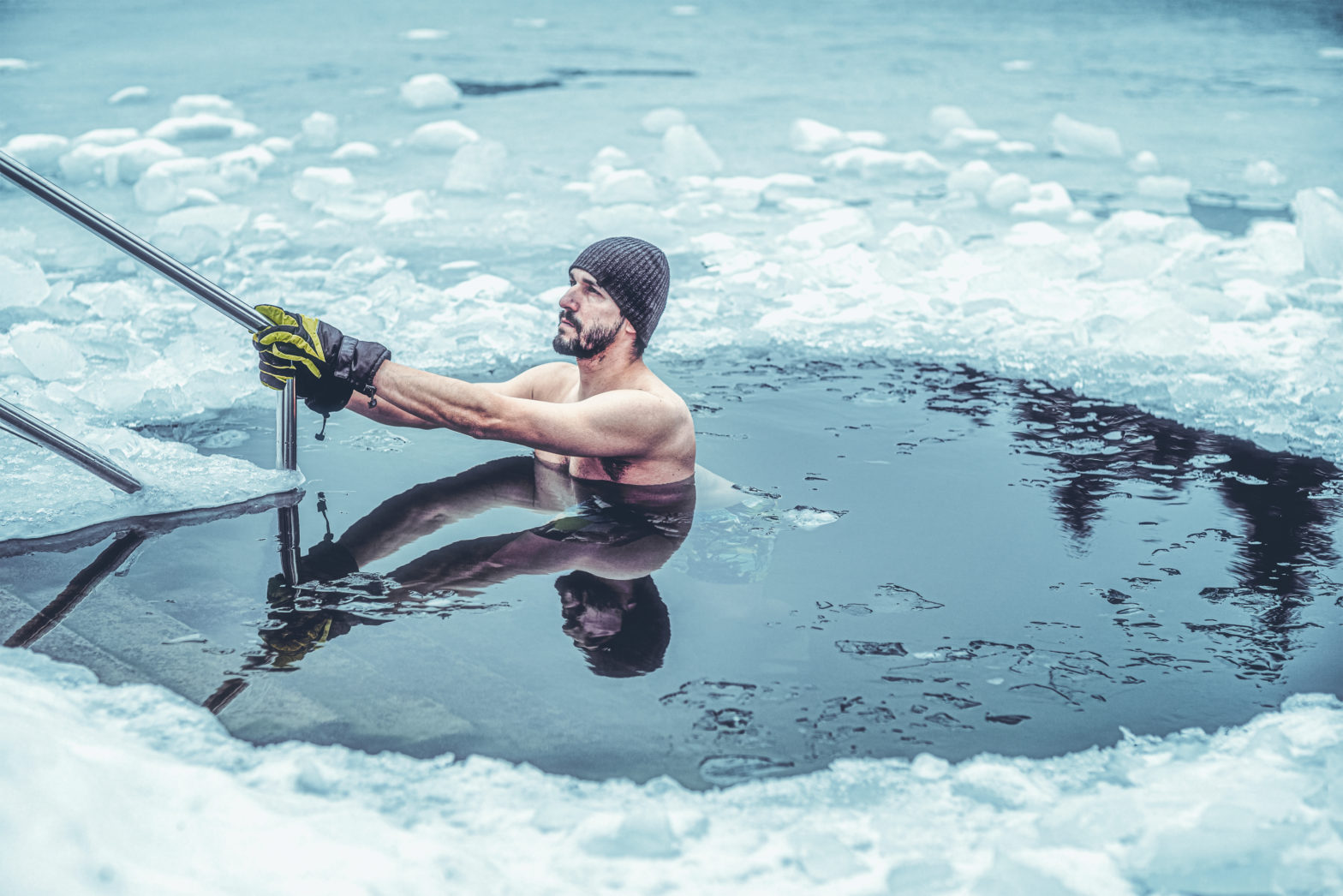Introduction:
You may have witnessed well-built athletes like Usain Bolt, Anthony Joshua, and Cristiano Ronaldo immersing themselves in ice-cold water. Especially Cristiano Ronaldo has often reached the news with his ice bath strategy as a means to speed up his recovery. There has been this interesting (older) interview with Football Manager Carlo Ancelotti about Cristiano Ronaldo during his time at Real Madrid F.C. “…Cristiano Ronaldo, a self-motivating near-cyborg who took 3am ice baths in the Real Madrid’s training complex. “Even though he had Irina Shayk waiting for him at home!” Ancelotti yelps, referring to the Portuguese’s former lover…”.

Cristiano Ronaldo as a Cyborg
Clearly, given that all these elite athletes apply ice baths, they have become a popular recovery strategy. However, if your goal is to increase muscle mass, you may wonder whether this practice actually helps or hinders muscle growth. In this article, we’ll explore the effects of cooling the body after exercise and examine its impact on muscle recovery and growth.
For a more general comprehensive understanding of muscle growth and building, you can refer to our detailed Muscle Building Guide.
The Impact of Cooling the Body:
Cooling the body after exercise has been shown to reduce muscle temperature and blood flow. This decrease in tissue temperature can alleviate muscle soreness and improve exercise performance in subsequent sessions. However, while some evidence supports the benefits of post-exercise cooling, there are also studies suggesting that the effects may be placebo-related or even detrimental to certain aspects of recovery. Previous work has shown that both anabolic signaling and ribosomal biogenesis is impaired following post-exercise cold-water immersion. Both these processes are key for stimulating muscle protein synthesis (which is important for repairing muscle damage and the muscle growth response). Therefore, it is important to look into the effects of post-exercise ice baths on the muscle growth response.

Acute Muscle Protein Synthesis Experiment:
To investigate the effect of cold-water immersion on the acute muscle growth response (muscle protein synthesis), we conducted a study with 12 healthy male adults who performed resistance-type exercise. One leg was immersed in cold water (8°C), while the other leg was immersed in thermoneutral water (30°C) for 20 minutes. Additionally, a protein shake containing labeled amino acids was given after immersion. By providing this ‘labeled’ protein shake, we could precisely investigate the incorporation of these amino acids (coming from the protein shake) into the leg muscles.
Interestingly, the results showed that the leg cooled by water immersion exhibited lower amino acid incorporation into the muscle. So, in other words, less of the amino acids from a protein shake are being used in a leg that is cooled for repairing and growing the muscles. What we also found was that there was an impaired muscle protein synthesis during the first five hours of post-exercise recovery. Therefore, these results clearly shows a negative effect of post-exercise ice baths on acute muscle protein synthesis.
Long-Term Muscle Protein Synthesis Experiment:
We also conducted a two-week study to determine whether the acute findings translated into longer-term effects. Participants performed seven exercise sessions over the course of two weeks, with each session followed by the same cold water immersion procedure. Muscle protein synthesis was measured here throughout the two-week period.
The results mirrored those of the acute experiment, demonstrating a 12% lower muscle protein synthesis in the cooled leg compared to the thermoneutral leg over the 2-week period.
So, overall this clearly shows us that cooling our muscles after resistance exercise does not seem to be a good strategy for the acute muscle growth response… but what happens when we look at actual gains in our muscle mass and strength?

Cold-Water Immersion and Muscle Mass/Strength Gains:
Although, muscle protein synthesis is crucial for muscle repair and growth and is a good indicator for muscle mass gains, it does not necessarily mean that increases in muscle protein synthesis also directly translate into more gains in muscle mass.
In order to investigate the impact of cooling on long-term gains in muscle mass more scientific studies have been performed. In line with our muscle protein synthesis experiments, these studies have shown that post-exercise cold-water immersion attenuates skeletal muscle fiber hypertrophy, as well as impair gains in muscle mass and strength.
Therefore, based on well-conducted experiments, it is advised to avoid cold-water immersion as a post-exercise recovery strategy if your goal is to increase muscle mass and strength.
Conclusion:
Despite its popularity among athletes, the evidence suggests that cold-water immersion after exercise is not beneficial for maximizing gains in muscle mass and strength. While it may have some positive effects on certain aspects of recovery, the negative impact on muscle protein synthesis and long-term adaptations should be taken into account by athletes.
Therefore, when your goal is to optimise both recovery and adaptation, we advise to consider alternative recovery strategies that can promote muscle growth while also maintaining optimal post-exercise recovery.
Some references:
- Link to the interview with Carlo Ancelotti
- Thesis Cas Fuchs “Strategies for Post-Exercise Recovery”: Link to the thesis
- Figueiredo VC, Roberts LA, Markworth JF, Barnett MP, Coombes JS, Raastad T, et al. Impact of resistance exercise on ribosome biogenesis is acutely regulated by post-exercise recovery strategies. Physiol Rep. 2016;4(2).
- Roberts LA, Raastad T, Markworth JF, Figueiredo VC, Egner IM, Shield A, et al. Post-exercise cold water immersion attenuates acute anabolic signalling and long-term adaptations in muscle to strength training. J Physiol. 2015;593(18):4285-301
- Fuchs CJ, Kouw IWK, Churchward-Venne TA, Smeets JSJ, Senden JM, Lichtenbelt W, et al. Postexercise cooling impairs muscle protein synthesis rates in recreational athletes. J Physiol. 2020;598(4):755-72
- Fyfe JJ, Broatch JR, Trewin AJ, Hanson ED, Argus CK, Garnham AP, et al. Cold water immersion attenuates anabolic signaling and skeletal muscle fiber hypertrophy, but not strength gain, following whole-body resistance training. J Appl Physiol (1985). 2019;127(5):1403-18
🧬 The scientific guide to building muscle mass by Dr. Cas Fuchs (Ph.D.) is currently under development. Sign up to be the first to hear when it launches:
